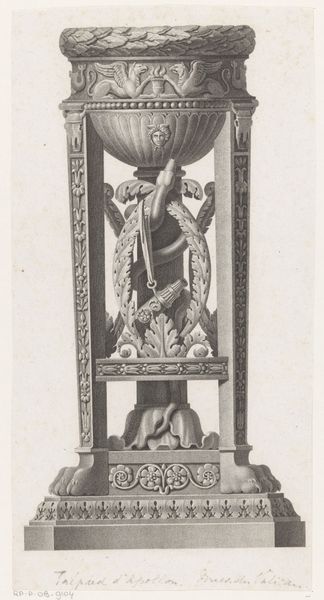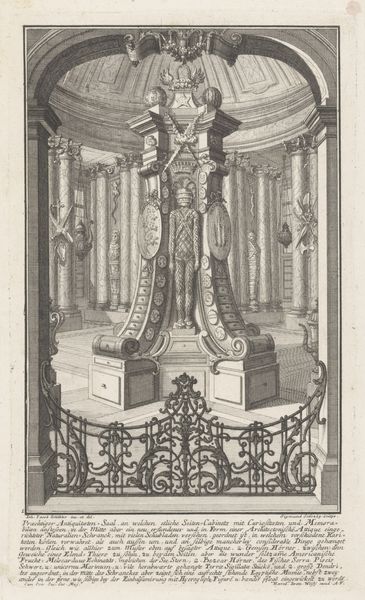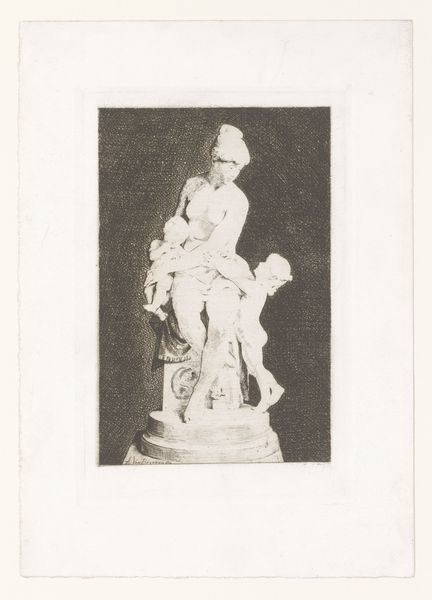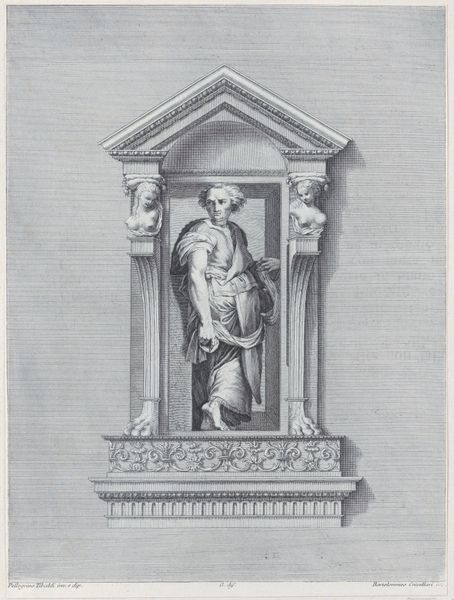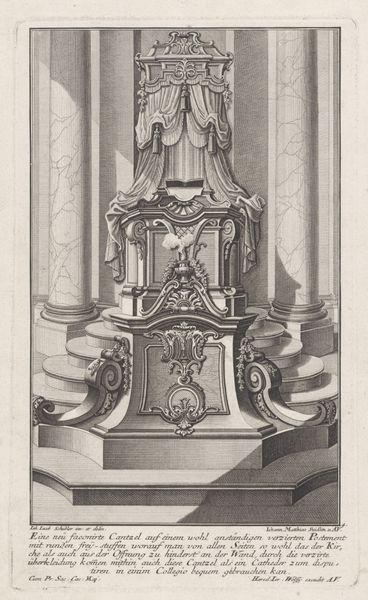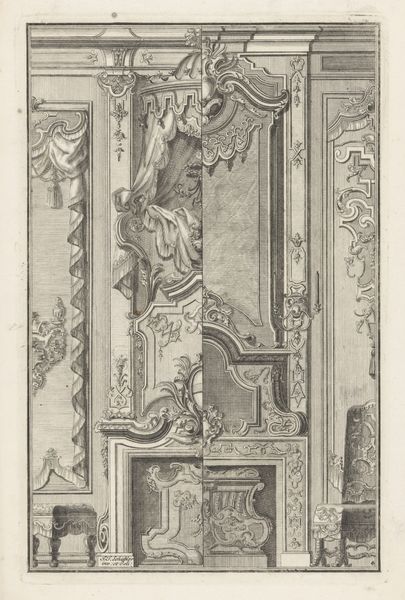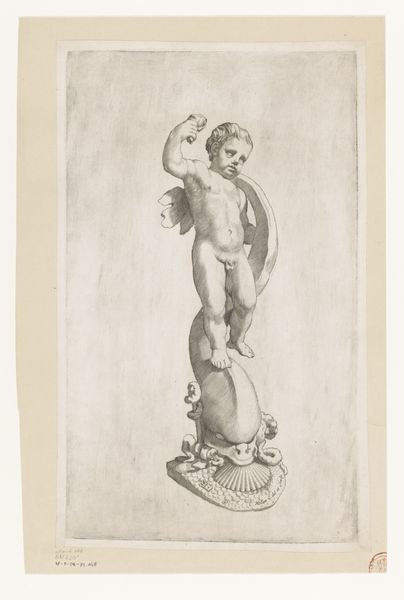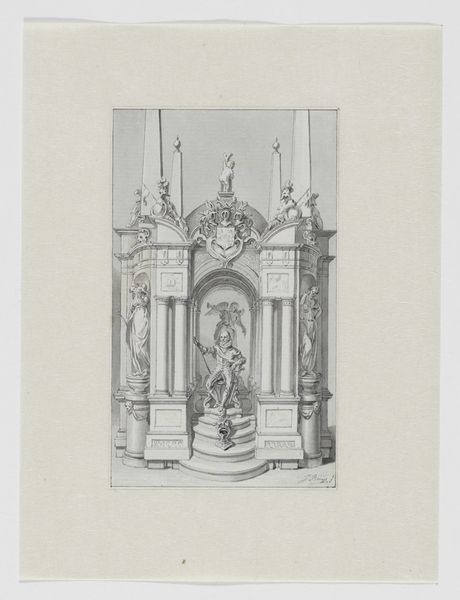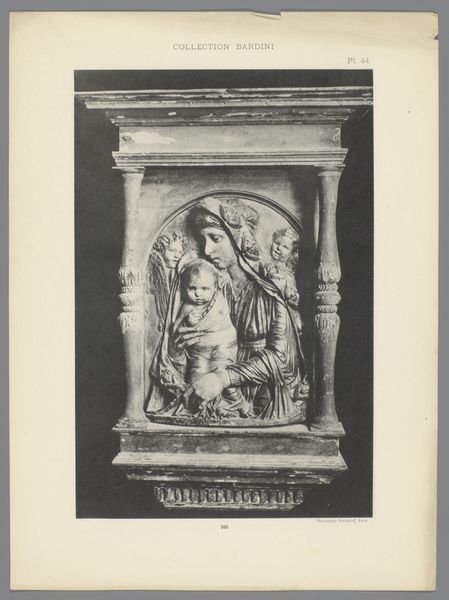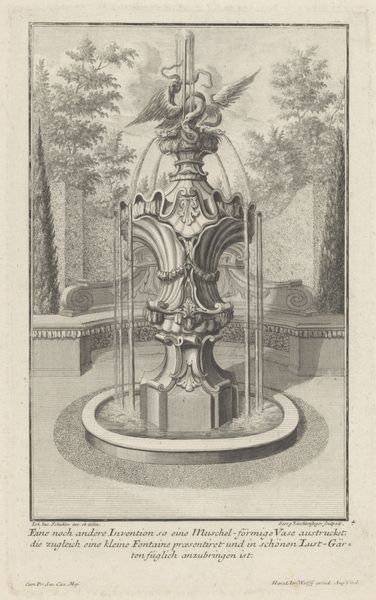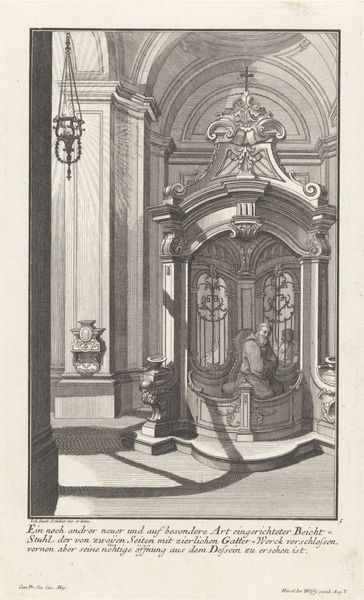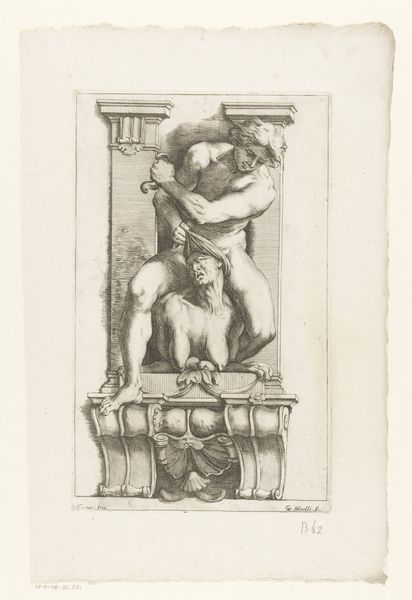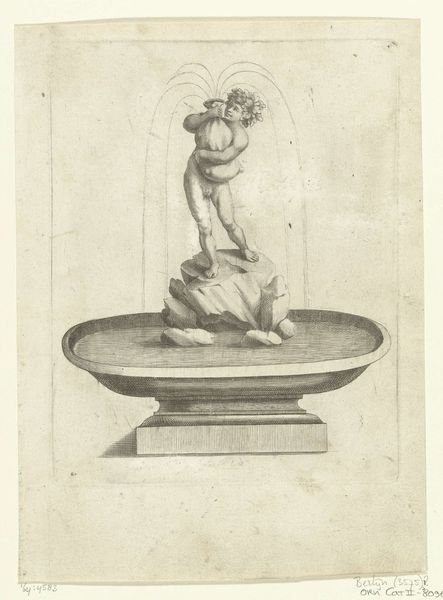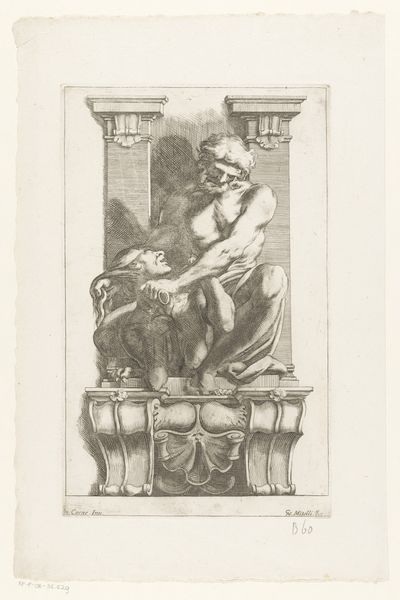
Tuinvaas met wapentrofee en de afkorting van de tekst Senatus Populusque Romanus 1710 - 1781
0:00
0:00
georglichtensteger
Rijksmuseum
print, metal, engraving
#
baroque
# print
#
metal
#
old engraving style
#
classical-realism
#
romanesque
#
geometric
#
line
#
history-painting
#
engraving
Dimensions: height 282 mm, width 175 mm
Copyright: Rijks Museum: Open Domain
Curator: Georg Lichtensteger's "Tuinvaas met wapentrofee en de afkorting van de tekst Senatus Populusque Romanus", created between 1710 and 1781, is a fascinating engraving currently held at the Rijksmuseum. Editor: It has this ghostly quality to it, doesn’t it? Stark lines against the white, depicting something monumental yet… fragile somehow. The details are meticulously rendered. Curator: Absolutely. The line work is incredibly precise, typical of the engraving process. The materials used—the metal plate, the inks, the paper—dictate the final outcome in terms of texture and tonal range. We must also think about Lichtensteger himself; he was, in a sense, a craftsman responding to the demands of the printing market of the time. Editor: But it's not just a vase, is it? It’s overloaded with symbols: the Roman armor, the laurel wreaths… SPQR emblazoned on the top, reminding us of ancient Rome. To me it speaks volumes about power, victory, and the weight of history. What was its original purpose? Curator: Exactly. These kinds of prints often functioned within a broader system of knowledge dissemination, circulating amongst scholars and artisans to serve a function of sharing. Perhaps an object to display in a wealthy home, showing off refinement and taste. It connects to the larger baroque period—the art markets thriving, increased urbanization, colonialism… new audiences, patrons with specific tastes for this symbolic grandiosity. Editor: The symbols certainly tap into a deep well of cultural memory. The classical imagery would resonate with ideas of republican virtue, military strength, and enduring legacy. It's a deliberate construction of meaning designed to evoke specific emotional and intellectual responses. But does that resonate with how a craftsman sees these things, do you think? Curator: It’s very interesting. How Lichtensteger may view those emblems, their meaning in the context of daily manual labour, rather than the more elevated, political rhetoric it speaks of at face value… that opens up avenues for further thought. Editor: Indeed, reflecting on the symbols themselves—and considering both the creator’s process and their effect on us now—gives us insight into their lasting cultural resonance. Curator: A valuable point indeed. Analyzing Lichtensteger’s print through the lens of its production and social function certainly provides a nuanced perspective.
Comments
No comments
Be the first to comment and join the conversation on the ultimate creative platform.
